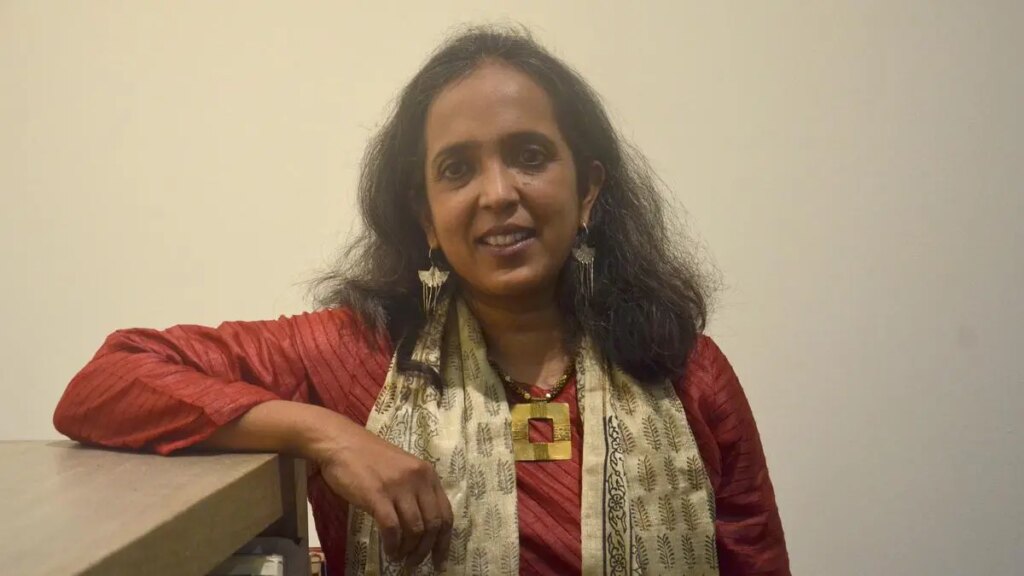The teacher, performer, activist, and writer Sumangala Damodaran has many avatars: labour economist; professor; author of several books on subjects like the informal sector, gender, and migration; and singer of protest songs in five different Indian languages. Each aspect of her career enriches the other, she says. However, there have been times when her well-wishers have feared that the opposite might happen. For instance, when she performed songs of resistance in 2020 in solidarity with the women protesting against the Citizenship (Amendment) Act in Delhi’s Shaheen Bagh, many thought that her association with the social ferment would jeopardise her academic career; she was then a professor at the School of Development Studies, Dr. B.R. Ambedkar University Delhi. But Damodaran was unfazed. Her political commitment as a feminist and cultural activist meant that she continued to perform, not just in Shaheen Bagh but also at other iconic protest sites, in India and abroad.
Damodaran’s association with political music began when, as a class XI student, she joined Parcham, a protest song group. This introduced her to the vast repertoire of songs of the Indian People’s Theatre Association (IPTA), composed during the nationalist movement and thereafter. This was to become the bedrock of her cultural activism and musical journey that would take her across the globe over the next four decades. A trained classical singer, Damodaran continues to perform IPTA songs from the 1940s and 1950s, many of which she has meticulously archived. The documentation culminated in a book titled The Radical Impulse: Music in the Tradition of the Indian People’s Theatre Association (2017) and a music album titled Songs of Protest (2011). Damodaran, currently Director, Gender and Economics, International Development Economics Associates, spoke to Frontline about the experience of being mentored by the playwright Safdar Hashmi, the IPTA archival project, and her international musical collaborations. Edited excerpts:
Was it a conscious choice to perform inspirational songs instead of classical music, in which you are trained?
Yes. Though I am trained in both Carnatic and Hindustani classical traditions, I never considered myself a classical singer. I never reached the level of expertise needed to perform in classical concerts. Once I joined Parcham and was exposed to the kind of music they were creating, I got attracted to that music. It appealed to me aesthetically and politically.
Also Read | In Faiz, they hear blasphemy, because they fear what he truly stood for
Is that what prompted you to perform at Shaheen Bagh and other protest sites?
I have performed in many protest venues after joining Parcham: whether it was during the outcry against the violence unleashed on the Sikh community following Indira Gandhi’s assassination in 1984, against communalism, or in support of trade unions and peasant movements.
The protest in Shaheen Bagh was a very specific kind of experience. The massive gathering of women who sat there, steadfast and courageous in the face of extreme repression and violence, was electrifying. For many hours every day, poets, singers, dancers, and stand-up comedians performed there—both for the women who refused to move from the spot and for those who came to express solidarity with them. The audience responded very intently to each of the performances. For me, that was an intense experience.
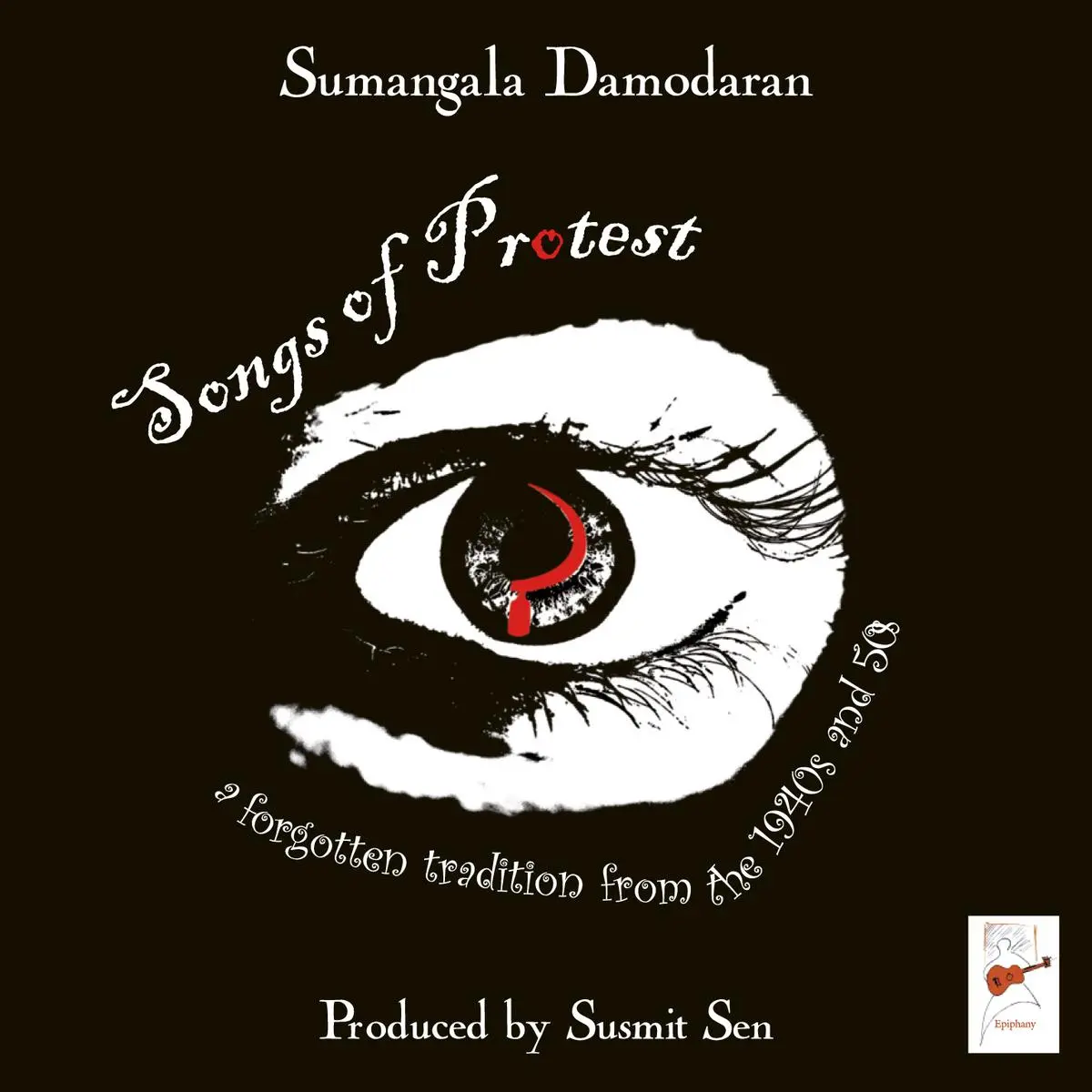
The cover of the music album Songs of Protest.
| Photo Credit:
By special arrangement
Were you taking a career risk by siding with the Shaheen Bagh protests?
I never thought of performing at protest venues as risking my career. It is not unusual to express solidarity with protest movements as a speaker or a performer. It has always been done. It has become risky in recent years because of state reprisal.
I have participated in international solidarity movements of artists—not only against the recent genocide in Gaza but also against the decades of injustice happening in Palestine, and in support of the African National Congress in its anti-apartheid movement from the 1980s till 1994.
Do the sensibilities of Sumangala the feminist and economist inform the choices of Sumangala the singer?
Yes, they do. The questions I have asked as a researcher have been informed by my training in the social sciences and my sensibilities as a musician. My political commitment as a feminist and cultural activist has certainly influenced the venues I have chosen to perform in, like Shaheen Bagh or the World Social Forum. I have also sung extensively in festivals and at art events in universities.
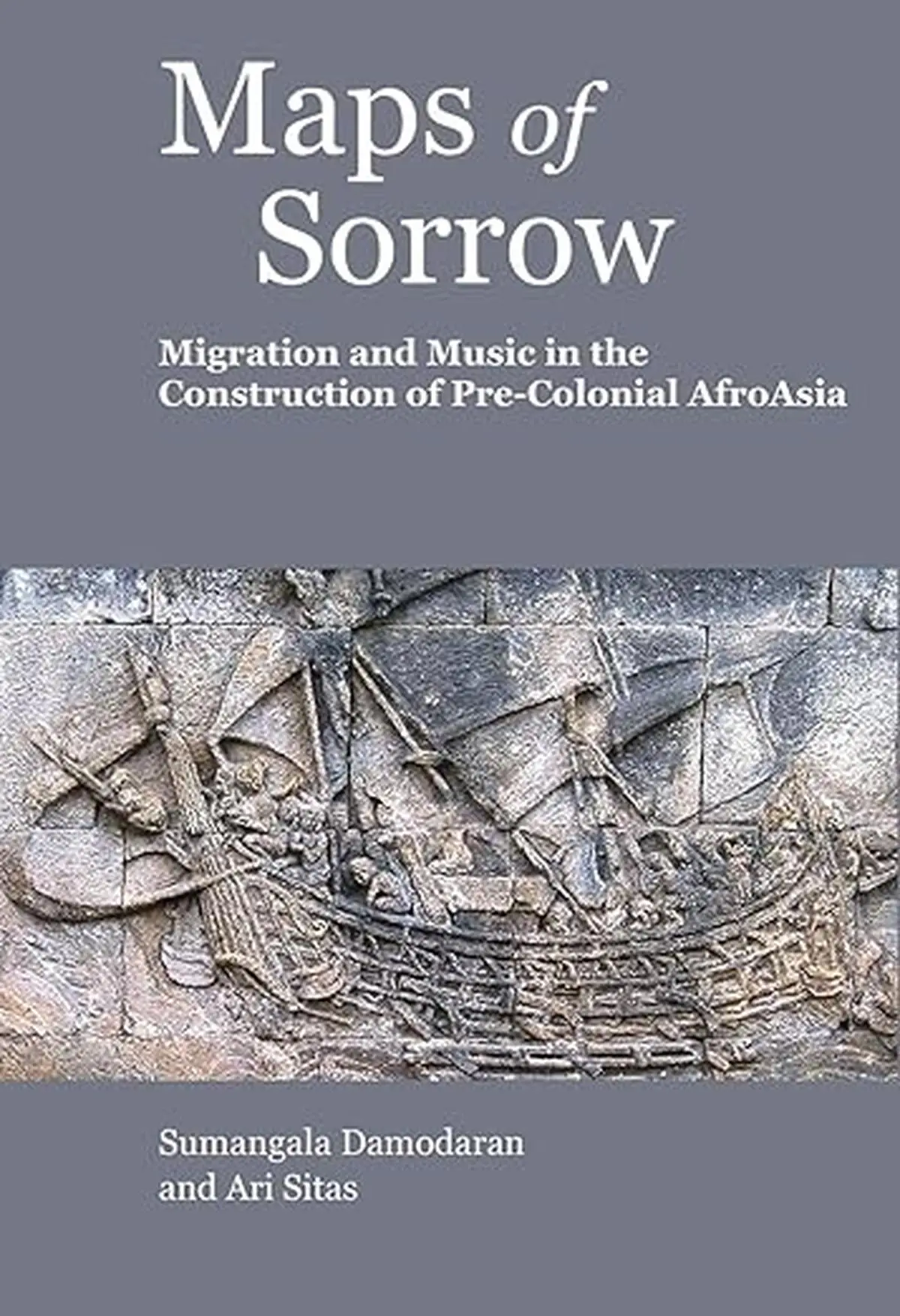
Maps of Sorrow: Migration and Music in the Construction of Pre-Colonial AfroAsia shows how different types of musical traditions came from and were carried forward by women in servitude or slavery.
| Photo Credit:
By special arrangement
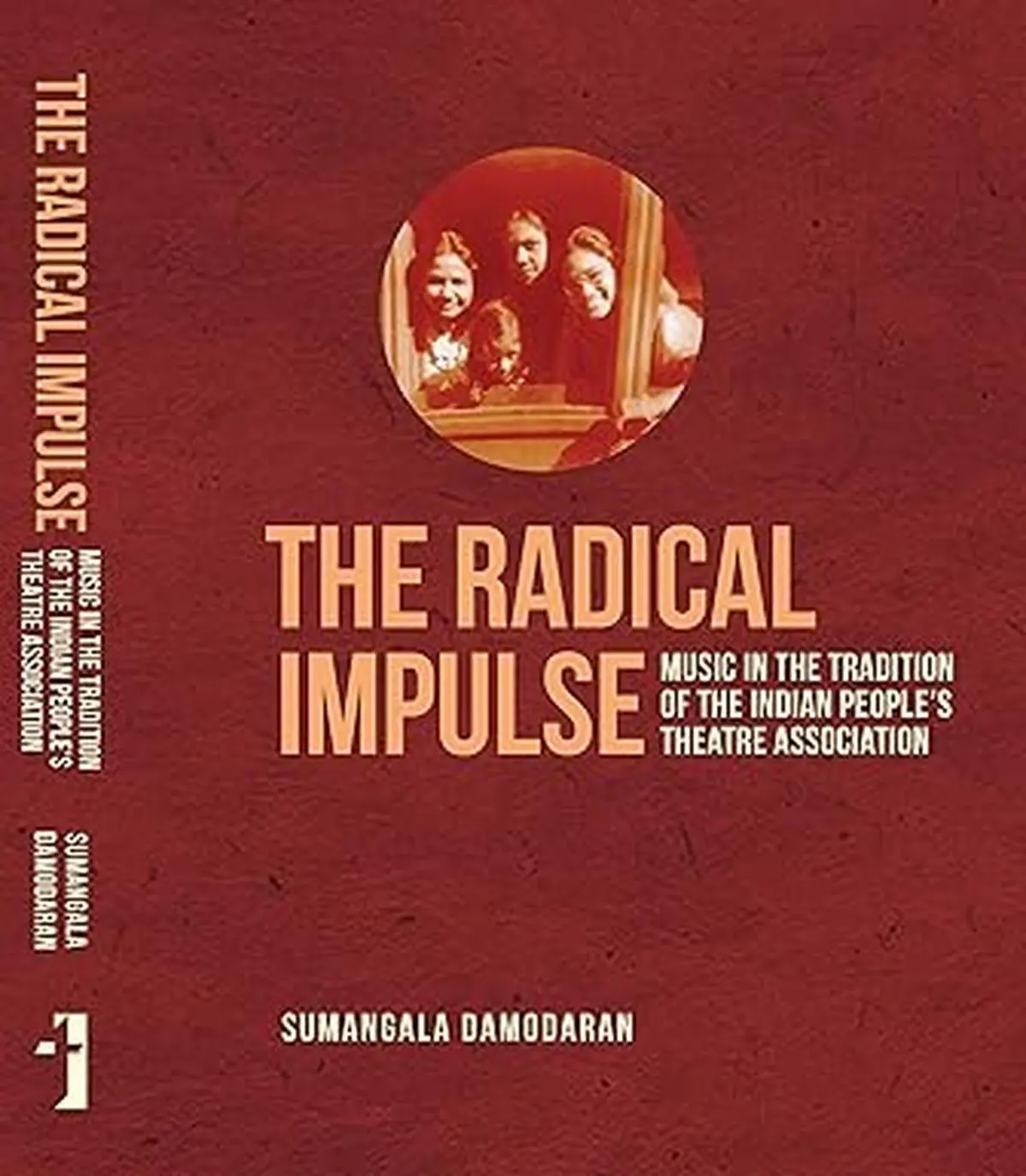
The Radical Impulse uses anecdotes to retrieve histories and reconstruct tunes of the IPTA.
| Photo Credit:
By special arrangement
Do you think that the radical impulse among artists is on the wane? Does music still inspire everyday resistance?
There was a period in which the music in response to social issues had become stilted and formulaic. But in the last 10-12 years, there has been an upsurge, resulting in a huge variety of music in different languages and styles. Lots of young people are writing and performing music, which is amazing. Musicians are asking critical questions through their music.
Are songs like that of IPTA still relevant? Can they play a meaningful role?
In the current global context, with increasing xenophobia, war, and gender-based violence, music has a big role to play. In my own experience, I have seen that songs composed in response to past events have had an impact on the present, in India and abroad. Music plays a huge role in articulating social problems and in mobilising the masses, as we have seen in the Black Lives Matter and similar movements by immigrant communities all over the world.
Why did you decide to document the IPTA songs?
There is a song, “Jaane waale siphahi se poocho” [Ask the soldiers who are leaving], written by the Urdu poet from Hyderabad Makhdoom Mohiuddin on the plight of poor people who were recruited to fight for the British during the Second World War. I sang it solo and also as part of a chorus at trade union meetings, factory gates, street corners, and campaigns when I was in Parcham. This song, taught to me by playwright and theatre director Safdar Hashmi, got me interested in IPTA music. I learnt a lot from Hashmi and am lucky to have been mentored by him.
This is the first time that a documentation of the IPTA’s music from different regions has been done in different languages. Many of the songs were available only in fragments, and I had to reconstruct them by going back to the circumstances around which they were created and sung. The Radical Impulse discusses this methodology of using anecdotes to retrieve histories and reconstruct tunes. It includes lyrics and musical scores.
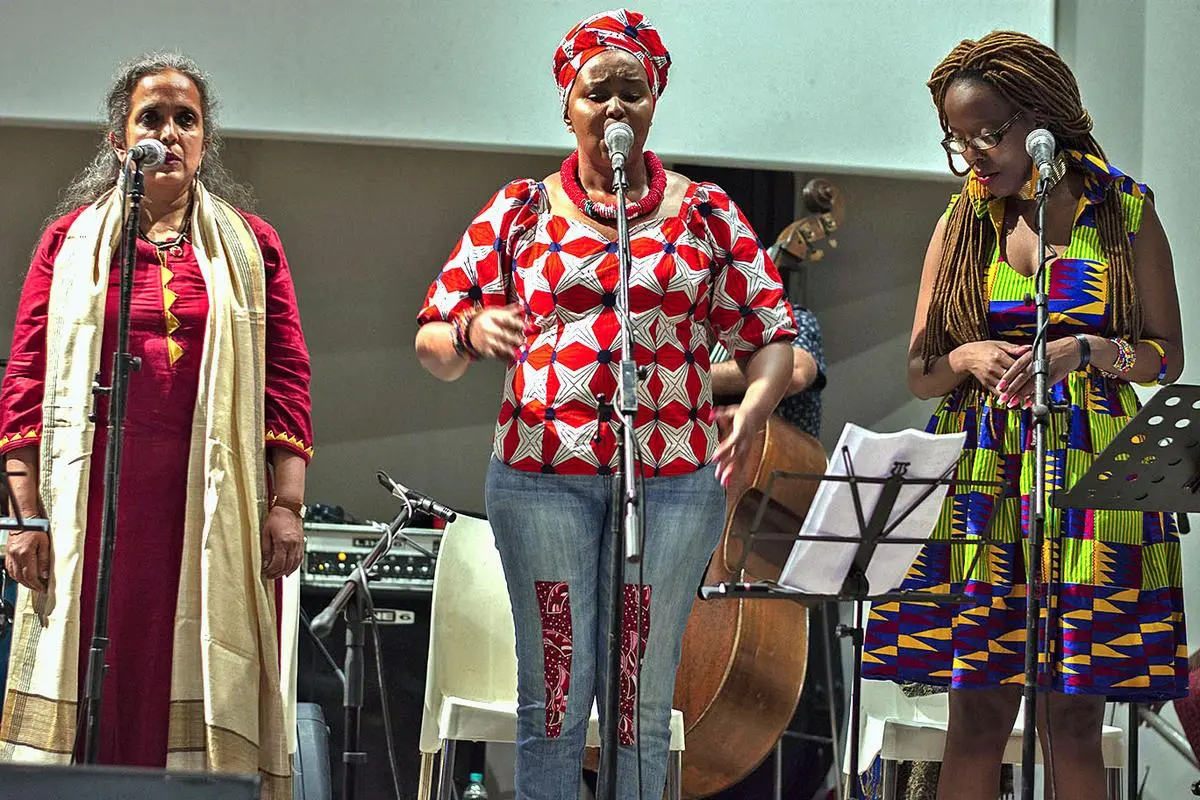
Sumangala Damodaran (left) with a group of vocalists at the Indo-South African Music Endeavour in Kochi in December 2018.
| Photo Credit:
By special arrangement
How did you think of researching music and migration, especially in relation to women in slavery and servitude?
Beginning from a heer [a traditional Punjabi ballad], “Kinu phol dassan dukh dard saiyon” [To whom can I tell my sad story], that I learnt from the IPTA repertoire and later recorded in the album Songs of Protest, I started looking for laments referring to migration, bondage, and women’s lives. I found similar melodies on these themes across Africa and Asia. This led to a large intercontinental and multi-institutional project, Re-Centring AfroAsia: Musical and Human Migrations in the Precolonial Period 700–1500 AD, initiated in 2016 with South African sociologist Professor Ari Sitas, that looked at pre-colonial relations between Africa and Asia through the lens of music. This collaboration led to the 2022 book, Maps of Sorrow: Migration and Music in the Construction of Pre-Colonial AfroAsia, which shows how many different types of musical traditions came from and were carried forward by women in servitude or slavery.
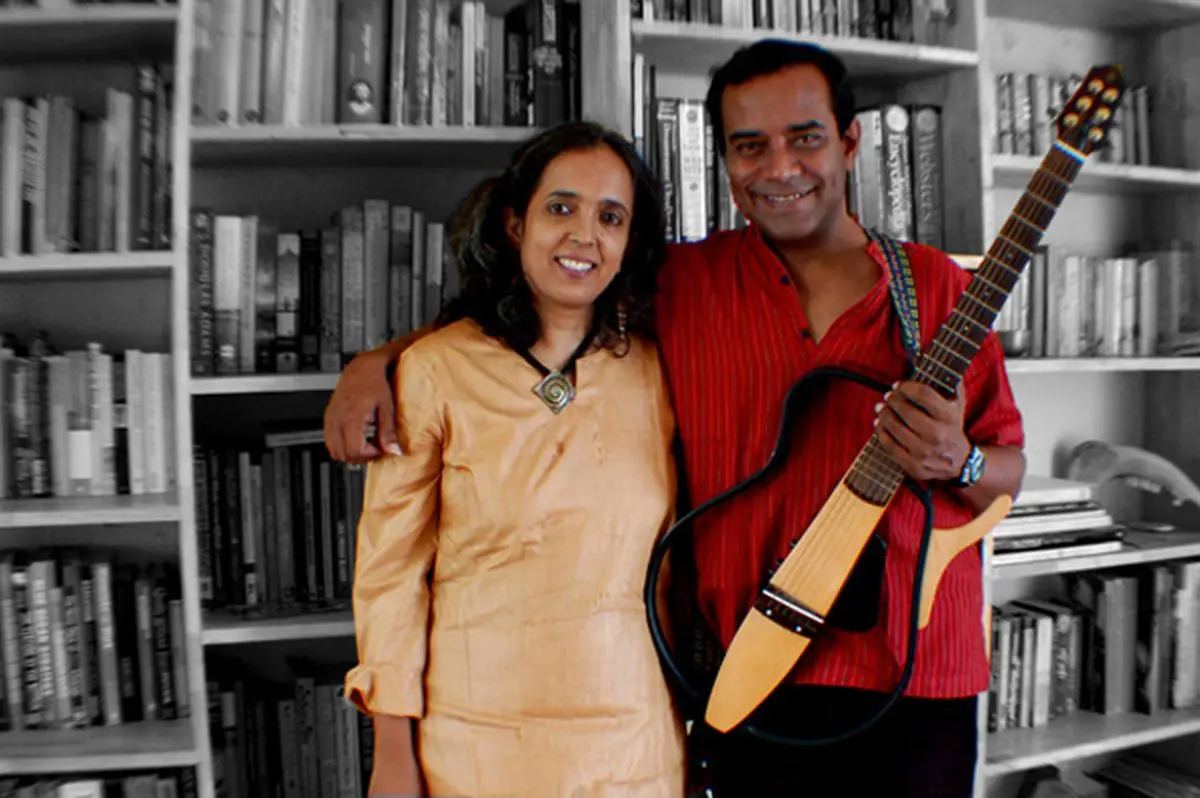
Sumangala Damodaran with Susmit Sen, guitarist and member of the music group Indian Ocean in 2010.
| Photo Credit:
By special arrangement
Do you find it challenging to balance your work as an economist and a musician?
The frame of mind of an academic, particularly an economist, is different from that of a performer and a music researcher. The latter requires a deep and slow engagement. It often becomes difficult to balance the two sensibilities, but one also influences the other in unexpected ways.
For instance, my experience as a social science researcher helps me formulate questions for my music research or choose songs for performance. The reverse also holds true. The experience of performance, such as watching other musicians on stage or noting the audience’s response, has helped me connect with social realities in ways that regular social science fieldwork could never do.
Also Read | The saint, the song, and the social revolution
How did collaborative projects with international artists like “Giraffe Humming” and “Must Gandhi Fall” come about? Are there more in the pipeline?
Giraffe Humming” was based on the story of three giraffes who were transported from Malindi in East Africa to Malabar, then Calcutta, and then to China in the 15th century. Through the imagined voyages of the giraffes and their keepers, we constructed a musical and visual narrative. It involved musicians from India, South Africa, Ethiopia, Zanzibar, and China and was first performed in Cape Town in 2021 and later in India, first at the Kochi Biennale 2023 and, later in the same year, at the International Theatre Festival in Kerala.
In October 2024, I performed in a collaborative project called “Must Gandhi Fall” in Cape Town. It was a reappraisal of Mahatma Gandhi’s legacy in India and South Africa. I performed two compositions based on poems by my colleagues of Insurrections Ensemble, the Afro-Asian music group where I am a founder-member.
I am currently trying to study and archive the work of contemporary Indian musicians who have engaged with historical traditions, both classical and otherwise, to understand the present. It is a documentation project which I am calling “The Past in the Present”.
Swapna Majumdar is an independent journalist who writes on development and gender.
Source:https://frontline.thehindu.com/interviews/sumangala-damodaran-interview-protest-music-india-feminism-cultural-activism/article69685980.ece

